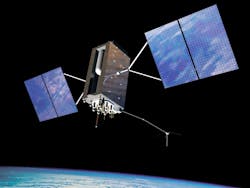The growing problem of jamming and spoofing of GPS satellite navigation signals just keeps getting worse
WASHINGTON – The Cessna Citation Excel business jet was approaching the Sun Valley, Idaho, airport when something seemed off about its flight path. Like a lot of planes, it was tuned to GPS for guidance. Usually, that's a good thing. On this day in August 2018, however, a problem arose. The GPS signals near the airport were unreliable, and smoke in the area made for poor visibility. The midsize business jet was off-course and flying too low in the mountainous terrain. CNET reports. Continue reading original article
The Military & Aerospace Electronics take:
20 July 2021 -- The likely cause for the wonky GPS readings? Military activity that caused jamming of the signals, according to an account from NASA's Aviation Safety Reporting System, which collates information provided by pilots, air traffic controllers and other aviation professionals. Fortunately, radar on the ground provided a more accurate reading, and controllers got the plane to its destination safely.
It wasn't an isolated event. GPS is all too susceptible to jamming and its trickster cousin, spoofing. The signals used by aircraft, ships, farm tractors, and your smart phone originate from satellites 12,000 miles out in space. By the time they reach Earth, they're vanishingly weak and easily overwhelmed. A satellite launched in June to the GPS constellation represents a tiny step in making the service more secure. But satellites themselves face dangers.
The precise signals from the Global Positioning System have worked their way into nearly every fabric of modern life, from recording bank transactions to synchronizing electrical grids to helping you find the nearest Starbucks. Businesses and individuals can use the system's PNT -- positioning, navigation and timing -- capabilities for next to nothing. In the U.S., GPS has about $1 billion a day in economic impact, according to the National Institute of Standards and Technology. It's also vital to the operations of the U.S. military.
Related: GPS jamming is a growing threat to satellite navigation, positioning, and precision timing
John Keller, chief editor
Military & Aerospace Electronics
